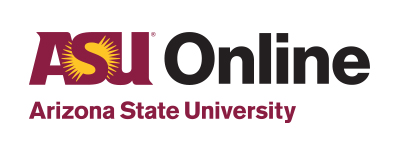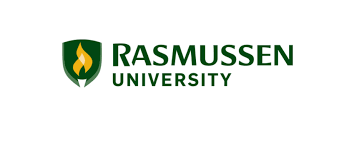Health Informatics Degrees Online with Financial Aid
If you’re working on your degree in health informatics or are considering one, the potential costs may be one of your top concerns. Don’t let the financial burden keep you from pursuing a rewarding career. With a little research, you’ll find a broad range of financial aid options for students like you. This guide highlights programs with financial aid for health informatics students, as well as assistance opportunities from professional organizations and program-specific scholarships. Keep reading to learn how you can complete your degree while saving on the costs.
Why Trust EduMed? We partner with 150+ nursing & allied health professionals to bring you the most in-depth data & insights on higher education & careers in healthcare. Meet our team and review our editorial values.
Jump To Section
Program Profiles: Discover Health Informatics Programs with Financial Aid
Health informatics programs that accept financial aid allow students to use various forms of assistance to cover tuition and other education-related costs, such as textbooks and course fees. At these programs, you can apply financial resources such as federal student loans, grants, scholarships, or other forms of assistance toward your tuition fees.
Typically, accepted aid includes Federal Pell Grants, Stafford Loans, and private scholarships. Programs that offer financial aid provide financial resources directly to students. These could include institutional scholarships, grants, or even work-study opportunities designed to ease financial burdens.
When choosing a program, you should consider the type and amount of financial aid available, the eligibility requirements, and the program’s overall cost. Some programs even offer payment flexibility, which could ease the burden on your bank account by letting you pay in increments. Below are three example programs that offer financial aid opportunities.
Georgia State University
At Georgia State University (GSU), you can earn an online graduate certificate in health informatics. This program is designed for healthcare professionals who are ready to specialize in health informatics in a short timeframe. The certificate is offered through a 19-credit-hour plan of study and can be completed in just 12 months.
GSU’s School of Nursing and Health Professions offers various scholarships, including ones issued through the school and scholarships from external institutions. Students in this program may also qualify for the Graduate Parent Loan for Undergraduate Students (PLUS) Loan to help cover remaining costs.
Mode: Online
Cost: $398/credit
Types of Aid: Scholarships and federal aid
Liberty University
Liberty University is known for its affordable online programs, and the health informatics master’s program is no exception. As a nonprofit university, Liberty focuses on keeping costs low and has kept its tuition rates frozen for the past nine years. The university offers various scholarships, such as Liberty University Online Scholarships. You’ll find scholarships for the children of missionaries, first responders, and employees of eligible companies as well. Qualified students may additionally receive federal aid.
Mode: Online
Cost: $565/credit
Types of Aid: Scholarships and federal aid
Purdue Global
Purdue Global, a branch of Purdue University, offers an online Master of Health Informatics program that’s both affordable and flexible. The 12-course program can be completed within a year and a half. There are several ways to reduce the cost of your studies, including tuition reduction and scholarships. The program offers 17% to 30% reduced tuition for current service members and 14% for veterans. Additionally, students living outside of the United States are eligible for a 25% reduction.
Mode: Online
Cost: $420/credit
Types of Aid: Scholarships, federal aid, and tuition reduction
FIND PROGRAMS NEAR YOU:

Arizona State University
PROGRAM:
Global Health, BA
Accredited by the Higher Learning Commission, Arizona State University offers 300+ top-ranked undergraduate and graduate programs online. As an online student, you'll have access to the same robust curriculum designed and taught by the ASU's award-winning and globally acclaimed faculty. Always pushing the boundaries of education, ASU is repeatedly ranked #1 for innovation in the U.S. for making the most innovative improvements in terms of curriculum, faculty, students and technology. That's a degree better.

Rasmussen University
PROGRAM:
Business - Healthcare Management - Public Health - Bachelors
For nearly two decades, Rasmussen University has invested in online degrees so that students like you can balance work, life, and school. Not only is it important to find an online program that fits your schedule, but it's also important to find one that prepares you to pursue your career goals with confidence. With over 50 fully online degree programs our learning options allow you to earn your credential your way.
Completing the Financial Aid & Application Checklist
Once you’ve made your shortlist of health informatics programs that best fit your needs, you can start on your checklist for financial aid. Of course, every program and scholarship will have its own application requirements, so check the program or scholarship website for specific details and review how to apply online. When you’re ready to begin, the steps below can help get you started.
Get an Early Start on the FAFSA
Make it a goal to fill out the Free Application for Federal Student Aid (FAFSA) as early as possible. You’ll need to create an account and provide personal information. If your parents claim you as a dependent, you’ll need to supply their information too. Colleges and universities can review the information from your FAFSA application and use it to help determine scholarships and awards. The FAFSA will also determine your eligibility for grants or student loans.
Review Eligibility Requirements Before Applying
Scholarship and other financial aid applications can be time-consuming to complete. To save time and effort, diligently check the requirements and verify you’re a good fit before you apply. You also need to ensure that you include everything that is required. Some scholarships require submitting multiple documents, such as a personal statement and letters of reference. Whatever the requirements, make sure you meet them all.
Stay Ahead of Deadlines
Deadlines for financial aid applications vary widely, with some annual awards having firm cutoff dates. Others may operate on a rolling basis and continue accepting applications until all funds are exhausted. You’ll need to prioritize the opportunities you apply for and keep track of deadlines. Submitting your applications early will help you provide quality information, avoid stress, and potentially give you a greater chance of receiving aid.
Prepare Necessary Documents
While each application will have specific requirements, there are some common elements that you may find across various financial aid applications. These can include a resume, academic transcripts, letters of recommendation, standardized test scores, and a personal statement or essay. It’s a good idea to prepare these well in advance of any application deadlines.
Ask for Feedback
It’s always a great idea to get an extra pair of eyes to look over your writing. If any of your applications include a personal statement, essay, or other written components, find someone who can read it and give you feedback, whether that’s a teacher, counselor, family member, or friend. You can also have someone review your resume and evaluate it for content and aesthetics.
Watch for Award Letters
Once you’ve submitted your scholarship and financial aid applications, keep a close eye on any communications and award letters you receive. This is where you’ll find more information about the award terms and the conditions for the aid you’ve been offered. Most awards also have a deadline for acceptance, so respond promptly if needed.
Funding Options Available for Health Informatics Students
Funding your health informatics degree or certificate can be daunting, but getting more information will equip you with the knowledge you need to navigate your online financial aid options. Aside from choosing an affordable program, most students turn to a mix of scholarships, grants, and loans to pay for their degree.
Federal Student Aid
Students who apply for federal financial aid by filling out the FAFSA will find they are offered Pell grants and/or student loans. Pell grants do not need to be paid back and are often awarded to undergraduate students who demonstrate significant financial need. Student loans are offered to most students and need to be paid back. There are several student loan options available that differ in their payback schedules. The loans include:
- Direct subsidized loans
- Direct unsubsidized loans
- Direct PLUS loans
- Direct consolidation loans
Before taking a loan, it pays to perform thorough research on student loans and understand your options.
Institutional Aid
Educational institutions also provide financial aid, usually in the form of scholarships. Scholarships are the preferred form of financial assistance since they do not have to be repaid. They are usually need-based or merit-based. Some schools have scholarships that students must apply for, such as a program-based scholarship or scholarships for students studying to receive specific degrees. When deciding which school to attend, make sure to research what types of aid they offer and apply wherever you can.
Payment Plans
Payment plans allow students to pay their tuition over time in multiple installments rather than in a lump sum. Such plans typically have fixed due dates and minimal interest and are offered by universities and colleges to make education more affordable. Allowing students to spread the cost of education over several months can reduce financial stress by breaking down significant expenses into manageable payments, making college more accessible for students from diverse financial backgrounds.
Scholarships & Grants
Scholarships and grants are both forms of financial aid that don’t need to be paid back. Scholarships are offered through the government, colleges, companies, foundations, and private institutions. Some major foundations offer scholarships for health informatics students, such as the Healthcare Information and Management Systems Society (HIMSS) and the American Health Information Management Association (AHIMA).
Grants are another ideal way to pay for your studies. They range from federal income-based grants, such as Pell Grants, to specific grants from industry organizations, such as the Certified Associate in Healthcare Information and Management Systems (CAHIMS), HIMSS, and AHIMA.
Examples:
- Amount: $5,000
- Three scholarships are awarded to one undergraduate and one master’s student enrolled in a program that’s related to the healthcare information and management field. Select grants are also available for minority students pursuing health IT careers.
- Amount: $3,000-$10,000
- The AHIMA Foundation offers a range of scholarships to students pursuing health information degrees at accredited institutions. Some of these awards are merit-based, requiring a minimum cumulative grade point average of 3.5. There are additionally scholarships available for active service members and their spouses.


